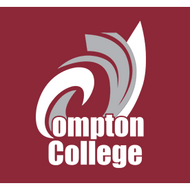
(View Complete Item Description)
The Faculty Quick Start Guide is an outcome of a project by ISKME, supported by a grant from the Michelson 20MM Foundation, to conduct a study and develop a set of resources to accelerate OER use for distance education, especially the urgent shift to remote learning during the pandemic in 2020. The Guide, created in collaboration with a selection of OER and online education champions across California community colleges (CCC), contains:
- Models and approaches to online learning, and to emergency remote learning in the context of COVID-19;
- How and to what extent OER fits into these models, and local and state-level supports needed for its integration and sustainability;
- Design considerations for integrating OER in online learning, including pedagogical and platform considerations;
- Curatorial practices, such as using OER curation tools and aligning curated OER to learning outcomes; and,
- Starting points and tips for colleges and faculty who want to initiate OER integration into distance education.
Tailored to faculty and campus administrators both in California and beyond, the Guide has the aim is to enable system-wide shifts to meet postsecondary institutions’ long term goals for distance learning, and faculty’s emergency plans for remote learning in response to the COVID-19 and potential future crises.
The Guide is also available as a PDF for download: https://drive.google.com/file/d/17AXs30dZeLOrGeNBQ-ISc_OJXIxE9xtB/view?usp=sharing.
See the companion guide for administrators at: https://www.oercommons.org/courses/iskme-michelson-20mm-oer-campus-administrator-quick-start-guide-public/edit
Material Type:
Reading,
Teaching/Learning Strategy
Author:
ISKME




















